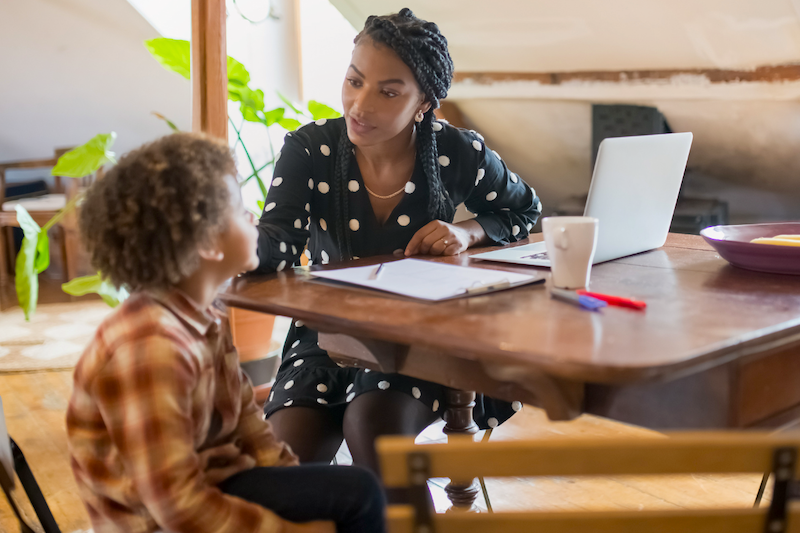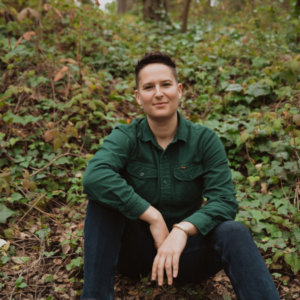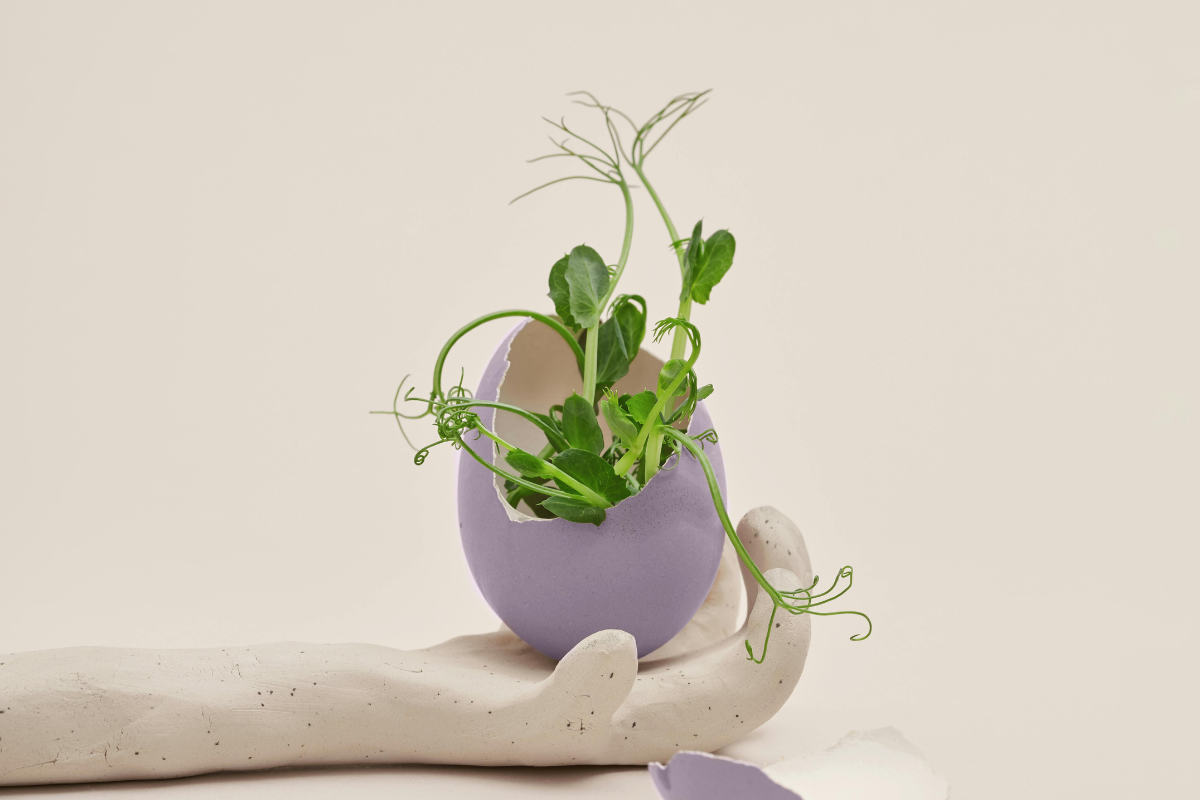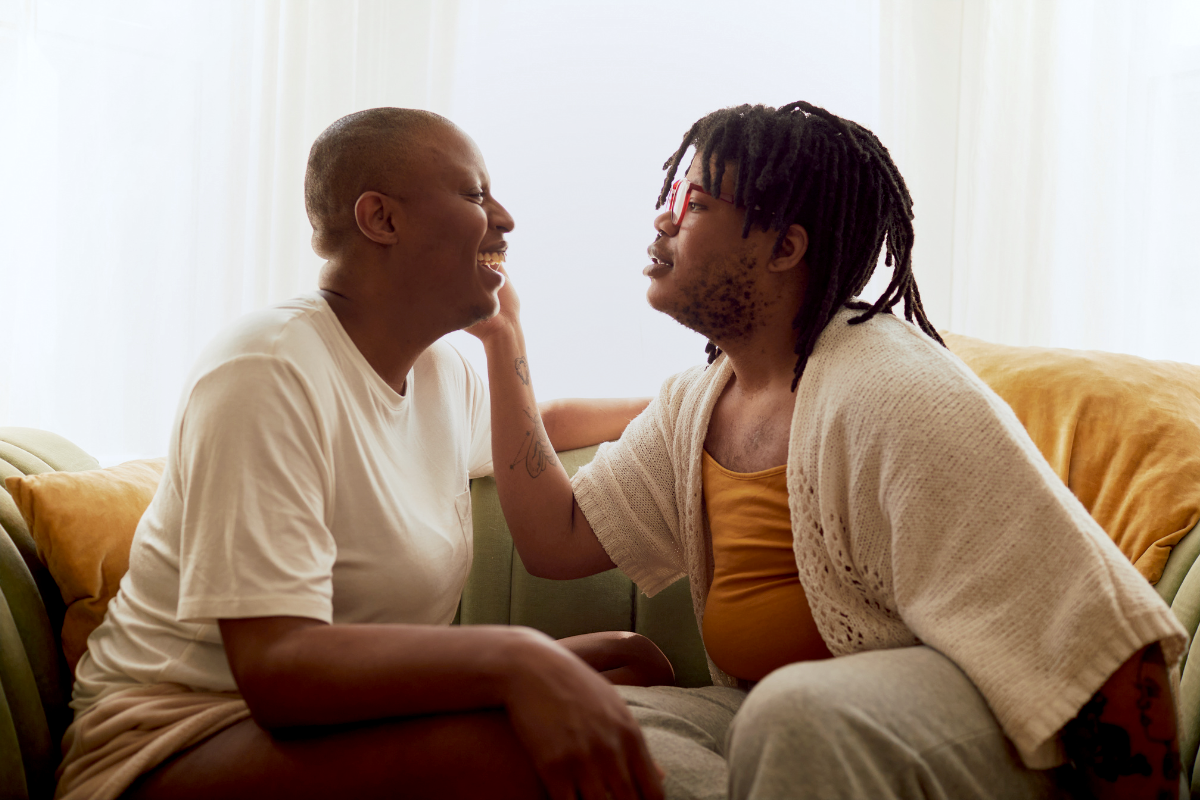We live in a world that typically defines a family as two heterosexual parents and 2.5 children who each share half of their DNA. However, many families today defy these stereotypes and challenge the assumptions about what family can and should be.
Because of this, it can feel confusing and scary to talk to others about how we formed our families. What does it look like to tell your kids and family about using a sperm or egg donor?
As a parent to three kids with directed (identified) donors (previously called known donors), I know that these conversations are essential and can also bring up deep questions and vulnerabilities in the process. I cringe when people refer to my kids’ donors as their “dads.” My kids’ donors are honored and important figures in their lives, but they definitely do not do the work of parenting them. However, some donor-conceived people advocate using different language, such as “biological parent,” when talking about donors — or at least letting your children lead when they are old enough to do so.
If you used a nonidentified donor (previously called anonymous donors), your conversations and terminology might be a bit different, but the complexities are the same.
In this article, we will explore:
- Coping with complex feelings about your donor
- How do you tell your family and community about using a donor?
- How do you talk to your kid about their donor?

Coping with complex feelings about your donor
Those of us who use donated gametes (sperm or eggs) because of our relationship status or infertility issues often wish we didn’t need to be in this situation in the first place. Many couples feel some level of grief that they can’t grow their family by combining each of their DNA, and prospective solo parents work through similar feelings about their family structure looking different than they had initially hoped.
These feelings are real and valid and deserving of support. We can work through them — in therapy or counseling, journaling, or mindfulness practice — and still talk about our donors with our donor-conceived children.
If there are two parents involved and one is biologically related to their child and another isn’t, it can bring up extra sensitivities for the non-biologically-related parent. As someone who loves two children who share none of my DNA, I get it — there’s a vulnerability there in feeling that I don’t share the same blood as my children and, in my most tender moments, a fear that they are not as much “mine” as they are their other parent’s.
Family is not limited to blood — it is the relationships we create and maintain. Understanding our blood relations is essential, but it doesn’t supersede the relationships we create with our daily devotion and love.
How do you tell your family and community about using a donor?
People may need to grow their family with donor gametes for a variety of reasons, and we all have a variety of feelings and assumptions about this process. Each of us carries bias within us, and some people haven’t questioned the assumptions they were raised with about what a family looks like. This can make it challenging to share your family-building plans with your family of origin and community.
Here are some suggestions for initiating these conversations.
- Start with the basics. Sometimes it’s helpful to remind folks of basic biology — that to grow a person, we need sperm, eggs, and a uterus. And sometimes, even with those parts, we can run into issues. There are people and institutions that can support us in one, two, or three of these parts. Sometimes, bite-sized refrains like “We are grateful to our donor for contributing to the DNA for our child” can be helpful.
- Share only what you are comfortable with. People have a range of (very valid) feelings around talking about this process. Remember, no one is entitled to information about you, your body, or your family if you don’t feel comfortable sharing it.
- Get creative in how you deliver the information. Share your plans in ways that work for you. Some people send mass emails or audio messages or ask a close friend to be in charge of communications for you.
- Let other people do the work for you. It’s not your job to educate everyone in your world yourself. Share resources with your people and invite them to do their own learning. (Example: sharing this article could be a good place to start.)
How do you talk to your kids about their donor?
There is a complex, growing body of research indicating that disclosure and openness can have positive impacts on a donor-conceived child’s mental health and sense of self. The American Society for Reproductive Medicine created guidelines for donor disclosure that encourage openness among donor-conceived children and communities. Research indicates that the majority of egg and sperm donors support open disclosure with donor-conceived people as well.
Talking with your kids about their donor can be beneficial in a number of ways:
- Medical reasons. Since many medical issues are hereditary, it’s important that people know who their biological relatives are in order to make well-informed decisions about their health care throughout their lives.
- Supporting their identity. Knowing who you are and how you came to be is an important aspect of forming your sense of identity in yourself and in the world. When children have all the relevant information about their origin, they can accurately piece together their identity as they grow.
- Modeling transparency. Keeping secrets from children, especially about who they are and where they came from, can cause them to feel betrayed and deceived when they find out the truth. In today’s world, with easy access to at-home DNA tests like 23andMe, many people find out that they aren’t in fact biologically related to the parents they thought they were. Modeling transparency from the beginning can help you avoid this scenario.
- Consanguinity. There’s a small but serious risk that a donor-conceived person may form an intimate or sexual bond with someone who shares their DNA. For donor-conceived people, having knowledge about being donor-conceived and disclosing this to potential sexual partners can be just as important as discussing safer-sex practices.
We know the research is there, but many of us need more support in having these conversations with confidence. So now let’s talk about how you can do it:
- Decide on language. First, get clear on the language you want to use in your family. Some families use “donor,” “donor dad,” “egg donor,” “duncle,” etc. Choose a word and stick with it for consistency’s sake, especially for younger children. As children age, they will start using their own language — let them, and follow their lead.
- Talk about it early and often. When you bring up this conversation early and often, you avoid feeling like you need to sit your child down for a big, capital-“T” talk. When this is information that they’ve always had, it’s easier for everyone involved. Conversations will evolve as your child grows and as you grow along with them.
- Use books. Research shows that using the Donor Conception Network’s children’s books has a positive impact on these conversations.
- Use photos. In some circumstances, you may want to put a photo of their donor in a special book or display it in your home in some way. This can help demystify this person and honor their role in your family’s creation story.
Remember that this is an ongoing conversation that will happen many times, in many ways. As your child gets older and gains a deeper understanding of biology, your language and approach will change. There’s no way to do it perfectly. Cut yourself some slack and let yourself learn and grow along with your child.
How do you talk to your kids about their donor siblings?
Similar to navigating talking to your kids about their donor, you may also be wondering about how to approach the conversation with them about their donor siblings. If purchasing sperm or eggs from a bank, many banks offer ways to connect with other parents who used the same donor gametes. If using a directed donor, having a conversation with them before donation about disclosure regarding other donor offspring may be a good thing to add to the donation agreement.
Research regarding connections with donor siblings is overwhelmingly positive — studies show that connecting children with donor siblings increases their sense of belonging (especially for only children).
I recommend using the same strategies as above when initiating conversations about donor siblings and letting your child’s preferences inform the relationships as much as possible.
Closing thoughts
As the body of research expands regarding the experiences of donor-conceived people, those of us growing our families through donor conception have the opportunity to learn how best to support our children (and ourselves) throughout their lives.
Luckily for us, there are more networks and resources available than ever before to help normalize our family-formation journeys. Remember, this is a common experience, and you are not alone.
The bottom line
- More and more research is emerging about the importance of transparency when talking to donor-conceived children about how they came to be.
- People can use different strategies when speaking with their communities and their children about their family origins.
- It’s important to address the feelings and biases that come up in yourself before initiating these conversations — and remember, you’re not alone in navigating this.
We recognize that readers of ParentData identify in different ways — read more about our approach to gender-inclusive language here.
Community Guidelines

















Log in